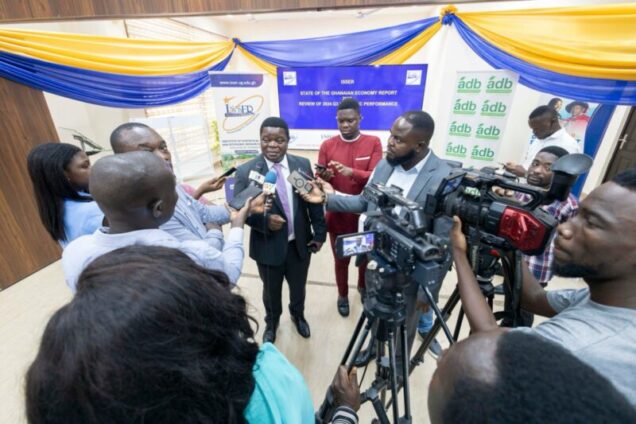The prospect of a 24-hour economy has sparked debate in Ghana, with the head of the Institute of Statistical, Social, and Economic Research (ISSER), Professor Peter Quartey, cautioning that the country may not yet be ready to operate round the clock.
Speaking on the proposal, he questioned whether a 24-hour economy could genuinely drive higher GDP and job creation, or if it would be better pursued as a long-term development goal.
“Will a 24-hour economy serve as the solution or is it premature? What about incorporating it into a long-term development plan?” asked Professor Quartey, highlighting the complex issues surrounding the proposal.
According to Professor Quartey, several structural and logistical hurdles may impede the immediate feasibility of a 24-hour economy.
“The argument is, will a 24-hour economy bring higher GDP and jobs, or is it rather a goal we should aim for in the long term?” he remarked. ISSER’s stance suggests that the discussion needs to be rooted in a realistic assessment of Ghana’s current infrastructure and workforce readiness, rather than being driven solely by manifesto promises.
Professor Quartey laid out several key challenges that could undermine the success of a 24-hour economy in Ghana:
1. Energy Supply: “Limited energy supply to power all sectors in 24 hours, especially manufacturing,” Prof noted, could hinder industries’ ability to operate continuously, especially at competitive levels within the sub-region.
2. Security: With extended hours, ensuring the safety of night workers would require “adequate security personnel to protect those working late into the night,” he pointed out. This would need significant investment in security infrastructure.
3. Market Demand and Competitiveness: Quartey questioned whether sufficient demand exists to sustain 24-hour operations, especially in sectors like manufacturing. “Will there be demand if factories operate 24 hours?” he asked, adding that Ghana’s industries must also be competitive regionally.
4. Infrastructure: The professor raised doubts about the availability of essential infrastructure, including water and road networks, to support continuous operations. “Do we have adequate infrastructure?” he asked, pointing out that without necessary improvements, a 24-hour economy could strain existing systems.Aligning manifesto promises with a pragmatic, long-term development strategy is essential, Quartey concluded. He urged policymakers to carefully evaluate the nation’s infrastructure and security readiness, energy capacity, and market demands before committing to a 24-hour economy. “This approach needs to be grounded in a robust, long-term plan if we are to realize sustainable economic growth,” he said.
The ISSER report underscores the importance of strategic planning, suggesting that while a 24-hour economy might hold promise for the future, Ghana’s current challenges must be addressed to avoid overburdening its developing systems.
Latest Stories
-
Fuel prices to fall from June 16 due to postponement of GH¢1.0 levy
49 minutes -
PassionAir assures passengers after Kumasi–Accra flight encounters turbulence
2 hours -
Fatherhood Beyond Finances: Two drivers inspire a rethink on presence, bonding and recognition
2 hours -
President Mahama urges protection of fuel price gains amid Middle East tensions
2 hours -
Republic of Rogues: Where Thieves Have Heads and the System Has None
3 hours -
Musah Mohammed donates jerseys and footballs to youth teams in Nkawkaw
4 hours -
Omane Boamah urges youth to persevere, recounts dramatic admission struggle at POJOSS
4 hours -
Minority unhappy over suspension of fuel levy, demands full repeal
4 hours -
Helicopter carrying Hindu pilgrims crashes in India, killing seven people
4 hours -
Council of State member urges Ghana to localise global solutions for youth employment
4 hours -
CAS overturns FIFA ruling and awards Right to Dream development fees from Ernest Nuamah’s transfer
5 hours -
Hitz Praise Zone: Nii Noi launches new gospel show on Hitz FM
5 hours -
BOAD reaffirms commitment to energy transition and sustainable agriculture in West Africa
7 hours -
10 kinds of women who have denied men the joy of fatherhood
7 hours -
A father’s hurdles caring for son with Sickle Cell disease – John Dzido shares a fraction
8 hours

